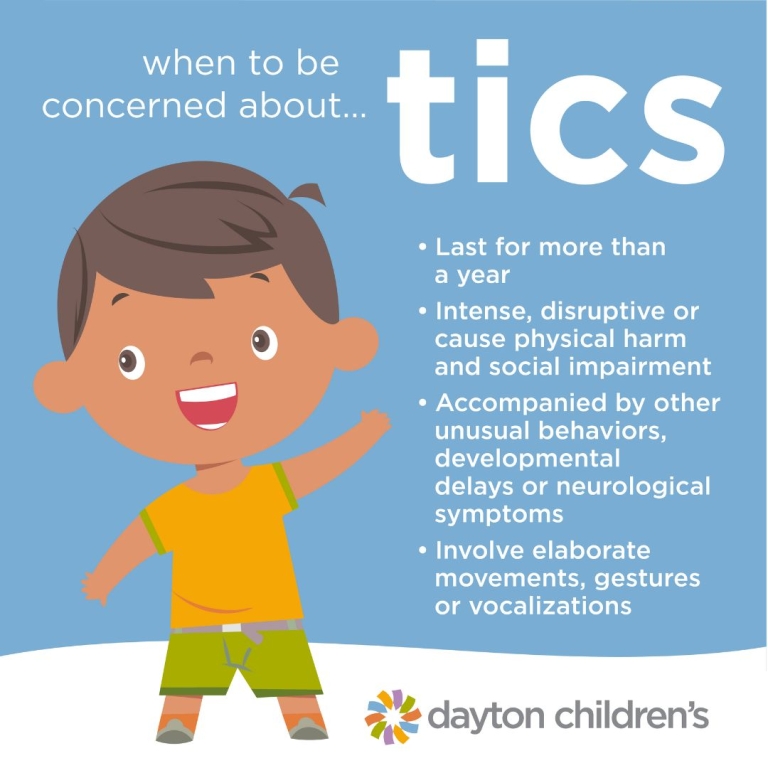8/22/23 blog post
when to be concerned about tics
in this article:
- What are the different types of tics?
- What are the types of tic disorders?
- When should I seek medical attention for my child?
Tics are sudden, repetitive movements or sounds that can be temporary or chronic. They are relatively common, especially in children, but determining when to be concerned about tics can be challenging.
We asked movement disorder expert, Kallol Set, MD, pediatric neurologist at Dayton Children's Hospital, to help us understand when tics are a normal part of a child's development, and when they are a cause for concern.
what are the different types of tics?
Tics are categorized into two main types: motor tics and vocal tics. They can be simple or complex. Tics can vary in severity and frequency, and they often start during childhood.
motor tics
Simple motor tics are brief and involve a single muscle group. Simple motor tics include nose wrinkling, head twitching, eye blinking, lip biting, facial grimacing or shoulder shrugging.
Complex motor tics usually involve more than one muscle group and can even look like the person is doing the tic on purpose. Complex motor tics include kicking, skipping, jumping, mimicking movements by others and smelling objects.
vocal tics
Simple vocal tics involve one simple sound. Simple vocal tics include coughing, throat clearing, grunting, sniffing, barking, and hissing.
Complex vocal tics involve more meaningful speech, like words. Complex vocal tics include repeating words and phrases, animal sounds, calling out, and yelling.
what are the types of tic disorders?
There are several kinds of tic disorders:
- Provisional tic disorder - this is the most common type of tic disorder. With a provisional tic disorder, the tics have been happening for less than a year.
- Chronic (persistent) tic disorder - this is a less common tic disorder. With chronic (persistent) tic disorder, tics have been happening for more than a year. The tics may be motor or vocal, but not both.
- Tourette syndrome - this is a much less common tic disorder. With Tourette syndrome, a person has multiple motor tics and at least one vocal tic happening for more than a year.
when should I see medical attention for my child?
In most cases, tics are a normal part of childhood development and often resolve over time. However, it's crucial to recognize the signs that indicate when tics may be a cause for concern.
Several factors could indicate that tics are a cause for concern:
- Last for more than a year
- Intense, disruptive or cause physical harm and social impairment
- Accompanied by other unusual behaviors, developmental delays or neurological symptoms
- Involve elaborate movements, gestures or vocalizations
If you believe your child may have a tic disorder, evaluation by a pediatric neurologist can provide clarity and determine an appropriate treatment plan. Schedule an appointment online.






